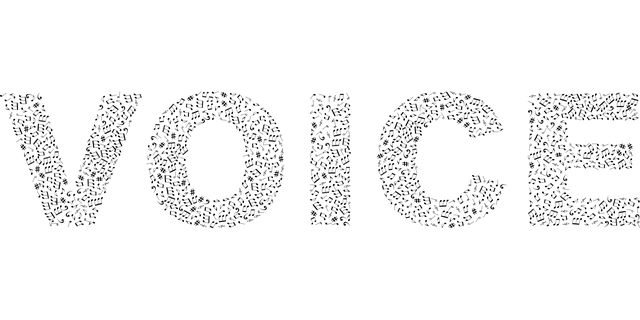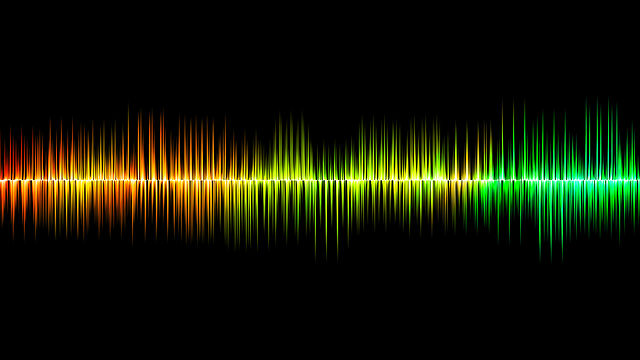Discover the Hidden Pitfalls of AI Voiceovers in Digital Marketing

Do you need a voice-over for your content, or project? In that case, you know there’s a choice to be made. Will you select AI, or will you go for a human voice actor?
Both options are a different side of the coin. They each have their own pros and cons. But which outweighs the other?
To figure that out, it’s essential to compare the two. To investigate what defines AI voice-overs, and what benefits hiring a professional voice actor.
This article in 30 seconds.
-
AI voice-overs are created by advanced machine learning algorithms. Robots mimic human voices while using tone, pitch and pacing.
-
There are two key factors to AI’s success:
-
Natural language processing
-
Machine learning algorithms
-
-
Using AI voice-overs offers certain pros:
-
AI is generally cheaper
-
There is no need for time-consuming contracting and auditioning
-
AI offers flexibility in editing text
-
-
However, there are also cons to using AI in your voice-over projects:
-
AI voices can’t reach us like human voices do
-
Artificial intelligence does not have facial expressions
-
Robots can’t emote because they can’t actually feel
-
AI can’t apply feedback like humans can
-
Using AI will result in job loss and abuse of human authenticity
-
Artificial intelligence does not (yet) offer regional accents and dialects
-
-
Will you use a human voiceover? This offers you certain benefits because:
-
Humans understand emotions
-
It’s easier to talk to a human
-
-
Research on AI vs. human voice-overs shows that there are many differences between AI and human voiceovers.
-
Human voice-overs have higher engagement rates.
-
Listeners find human voices more relatable.
-
Human voice talents excel in delivering nuances.
-
Engaging and emotionally resonant voices are crucial for marketing success.
-
Human voices bring emotional connection and authenticity that AI struggles to match.
-
-
By chosing VoiceProductions for your next voice-over project, you will quickly find the right voice actor for your project. Our experienced actors will help you create a lasting impact. Elevate your brand’s voice and contact VoiceProductions today.

What are AI voice-overs?
AI offers voices created by advanced machine learning algorithms. Then these voices are offered to the public through an AI voice generator. By doing research on human voices, it tries to replicate our voices. It does this while using tone, pitch and pacing. AI voice-overs are being used more and more, in every aspect of content creation. Take, for example, Siri. IOS’s digital assistant. Or do you love listening to audiobooks? How do you know if the book you’re currently listening to is not recorded by AI?
To give you an example, let’s look at the ALDI. The international supermarket has swapped its voices in advertisements for AI in the Netherlands. They have been open about this, have written articles and even advertised about this decision.
How did they make this change? They asked a dozen regular employees to record certain texts. With these multiple voices, ALDI has developed one digital voice: the new ALDI voice.
How does AI mimic human emotions? There are two key factors to that:
-
Natural language processing
-
Machine learning algorithms
Natural language processing (NLP) is a technology that enables computers to understand, manipulate, and interpret human language. Machine learning algorithms are rules or processes used by an AI system to conduct tasks.
With the help of these two factors, AI recognizes emotional cues. That’s how it learns what a person is trying to convey. After this, it converts text into speech.
However, while AI voiceovers offer consistency (and like Aldi says: “they will never catch a cold”), they can lack the emotional depth and nuance that human voices provide.
But what are exactly the pros, and what are the cons of using AI in your voice-over project? Let’s dive in and figure that out.
The pros of using AI voice-overs
Most people who choose AI in their voice-overs own small businesses that want to save money. Indie authors, freelance content creators, or other people who simply cannot afford to hire real voice actors. That is a choice that has to be made, but it also comes with consequences. Because choosing AI brings with it all kinds of factors.
The biggest advantages of choosing AI are:
-
Cost savings
-
Time savings
-
Flexibility
Using AI in your voice-over project is generally cheaper
Especially for small projects, using AI can be cheaper than hiring an actor. Most AI programs require a monthly subscription, after which you can use the synthetic voices unlimitedly. This is cheaper than hiring a real person and paying per hour or per word.
No need for time-consuming contracting
AI voiceovers can also be ready faster. Not because AI records the texts faster, human voice-overs are also often delivered within a day. No, mainly because you don't have to deal with the communication around it. Think of sending emails, waiting for a response. Even choosing the right voice (for example through auditions) or internal consultation. With AI, you get options of all the possible robot voices almost immediately.
One thing you mustn't forget, though, is that it's very difficult to find the same voice again for future projects. AI is always developing and changing. You never know if your voice has been altered, or even deleted.
You can easily edit the text online
Did you enter the wrong text, or do you need an extra sentence? That is also very easy for AI. You simply edit the marketing video script and the AI voice applies the change immediately. You can easily add an extra pause, or adjust the punctuation for clarity, for example. This way, it's easy to create custom voice-overs.
The cons of using AI voice-overs
Besides these advantages, there are unfortunately also many disadvantages. Consider for example:
-
Vocal diversity
-
Cues (non-verbal)
-
Emotions
-
Adaptability
-
Ethical considerations
-
Limited languages and dialects
Every voice is unique
To this day, the Earth has 8.1 billion people. And the number rises every single second of every day. It’s strange to realize that each one of us has a unique voice. Voices reflect everything that makes us us.
Our personalities, our backgrounds. How we grew up and what we have experienced in life thus far. That’s why it’s difficult for your audience to connect to AI voices. It just does not reach us like its human counterpart.
AI does not have a mouth
Voices change, depending on body language and facial expressions. It’s easy to say that this has nothing to do with voiceovers, but that’s incorrect. Expressions affect how we sound. You can hear it when a reader smiles during the recording, or even when he or she frowns.
AI can’t do this because AI does not have a face. AI can’t laugh while speaking, or move its mouth when talking. That’s why it can’t convey non-verbal cues, which results in lesser connection with your audience. Even the natural sounding AI voices will always lack that little something.
You can’t emote when you can’t actually feel
Human voices are unique when it comes to expressing emotions. AI can’t capture human emotions, or change its vocal tones. Emotions are tough for AI, which makes sense. Because l: how can you convey emotions if you can’t actually feel?
Usually, content is made to elicit an emotional response.
AI's synthetic voices lack personality and depth. This makes them boring, lifeless. It won't effectively guide the emotional response your content aims for.

Have you ever given feedback to AI?
Processing and applying feedback is crucial to the success of voice-overs. Voices should be slightly different for each assignment. One sentence should be said while laughing, while the other should be said a little faster.
People can easily apply feedback. Re-recording that one sentence, even just a bit faster or louder, takes very little time (if any at all). It's not like that with AI. Even if it can already apply the feedback, it takes a lot of time to clearly process the alteration. And time, as always, costs a lot of money.
Humans support humans
Not only the quality of your voice-over is affected by using text-to-speech and AI. The use of AI voices also contributes to professional voice actors losing their jobs. If you choose synthetic voices over human voices, eventually humans will lose their jobs. If you choose human voiceovers, however, you support a creative community. You will help sustain the livelihoods of professional voice-over actors.
AI also uses voices that it bases on real voices. So the authenticity of human voices is compromised. Take for example the recent news about the AI voice of ChatGPT. According to the famous actress, Scarlett Johansson, the voice sounded very much like hers. Something that was quite strange, since she herself was offered to do the voice in 2023 and turned it down.
Ever heard AI use a Belgian G?
While AI voiceovers excel in handling common languages, AI often struggles with less common languages or characteristics. Regional accents, and dialects, for example. Humans, on the other hand, can adapt more effectively to these linguistic nuances. This ensures for better cultural and linguistic accuracy.
To give an example: there is currently no Flemish AI voice. At VoiceProductions, we have human Flemish voices that possess perfect Belgian intonations. This is something that, within the realm of AI voiceovers, remains impossible (for now). Even when AI tries, it uses Dutch voices who pretend to use the Belgian G.
The pros of using Human voice-overs
While AI voice-overs can offer convenience, AI lacks the human element. If you are trying to tell a story and deliver a message, AI voices will fail to connect with audiences. That’s because human voices are incredibly unique when it comes to expressing emotions.
Human voices bring warmth and authenticity that’s difficult to replicate.
And why is that? The answer is quite simple: humans understand emotions, and are easier to talk to.
Humans understand emotions
Most people converse with other people on a daily basis. Either on the street, at the office, or perhaps with family and friends. It even happens without realizing, in commercials, on the computer or while watching videos on social media.
But, whether it’s a dramatic audiobook, an animated character or corporate training video: human voice reach us in a way that AI voices can’t. Humans can modify their tone, pitch. Even their pace, to suit the specific requirements of each project.
It’s easier to talk to a human
Working with humans also offers ease of communication. You can directly discuss your needs and preferences with them, ensuring that the final product meets your expectations. In contrast, communicating with AI can be challenging and often requires multiple adjustments to achieve the desired outcome. The human touch simplifies the process, making it more efficient and effective.

Comparison of an AI voiceover vs. a Human voiceover
Let's compare two fictional marketing campaigns. One will be using AI voiceovers and the other using human voiceovers.
-
The AI voiceover campaign. A company launched a marketing campaign using AI voiceovers. The campaign featured cost-effective and quickly produced audio content. However, it received mixed reviews. While some appreciated the clarity and consistency, others felt the lack of emotional depth and authenticity was a drawback.
-
The human voiceover campaign. Another company used human voiceovers. This campaign was noted for its engaging and emotionally resonant content. The voice actors brought nuanced performances that deeply connected with the audience.
Results and audience feedback
Of course, this case is fictional, but the references are not. Several websites have conducted research on the differences between AI and human voiceovers, highlighting real-world feedback and results.
-
Higher engagement rates. The human voiceover campaign saw higher engagement rates. According to research cited in the Frankwatching article, human voices elicit stronger responses in brain areas associated with memory and empathy, enhancing audience connection.
-
Authenticity and relatability. Feedback from the News Medical article highlighted that listeners found human voices more authentic and relatable, critical for building trust and long-term brand loyalty.
-
Training and education. An article from Training Magazine indicated that while AI voices are useful for consistent and repetitive training modules, human voice actors excel in delivering nuanced and engaging content. That’s because this type of content requires emotional intelligence.
-
Marketing success. Human voices often provide a more engaging and emotionally resonant experience. This is crucial for marketing success, according to the MiniMatters article. AI voices, while efficient, can lack the depth and connection needed for impactful communication.
-
Emotional connection. While AI voices are efficient and flexible, human voices bring a level of emotional connection and authenticity that AI currently struggles to match. This emotional depth is vital, says the Murf.ai article, as it creates a lasting impact on the audience.
Choose VoiceProductions for your next voice-over project
AI voices in your project are not the best idea. It might sound cheap and effortless, but that’s without looking at the hidden cost. It will lack audience engagement, and therefore your audience won’t connect with your content, message, or character.
That’s why it’s ultimately better to choose a professional voice-over company like VoiceProductions. VoiceProductions offers the best voice-overs, in one place. That’s how you will quickly and easily find the right voice actor for your project. With VoiceProductions you’re guaranteed of:
-
Professional recording, since we only work with the best voice actors.
-
A delivery time within 24 hours, or even faster in case of emergency.
-
Free sample recordings, receive a demo of your desired voice without charge.
-
Easy and free adjustments. If you have any comments or feedback, let us know!
-
Quick and friendly costumer service. 95% of all our questions are answered within 10 minutes.
-
Possible direct contact with your voice actor.
“Jimmy helped me perfectly for a last-minute project,” said Wim from Tell all the people. “Reachable even outside office hours and looking for a solution. Because of this, we met our deadline in the end.”
Jorden from Switchvisuals also left us a review. “Very fast and proactive service,” he said. “I experienced a very confidential and professional operation. Just perfect!”
Let us help you create a lasting impact with engaging and professional voice-overs that drive success and build strong, loyal customer relationships. Elevate your brand's voice and contact VoiceProductions — where authenticity meets excellence.
Frequently asked questions
Is AI taking over voiceovers?
Will AI take over in the future? AI has a huge potential in copywriting, visual art, and voice-overs. Not only the known voices of Siri, or Kat Callahan’s voice in TikTok videos. Still, AI voice-overs lack vocal variety, emotional expression and adaptability that human voiceovers provide.
How is AI impacting digital marketing?
AI is becoming more prevalent in digital marketing, finding its place in small projects, social media videos, and even audiobooks. While this technology offers convenience, it also poses challenges for voice artists who bring unique emotion and authenticity to their work. The use of AI risks creating a less diverse and vibrant audio landscape, where the warmth and professionalism of a human voice are irreplaceable.
Are voice-overs also used for social media campaigns, or social media marketing?
Yes, voice-overs are commonly used in social media marketing. They enhance video content, such as promotional videos, tutorials, and product demos. Using voice-overs in your digital marketing campaigns boosts the effectiveness.
Do many companies use AI voiceovers in their AI marketing strategy?
Yes, many companies do use AI voiceovers in their AI marketing strategy. It's becoming increasingly popular due to its efficiency and cost-effectiveness. However, when it comes to delivering authentic and impactful voiceovers, nothing beats the warmth and nuance of a real human voice.